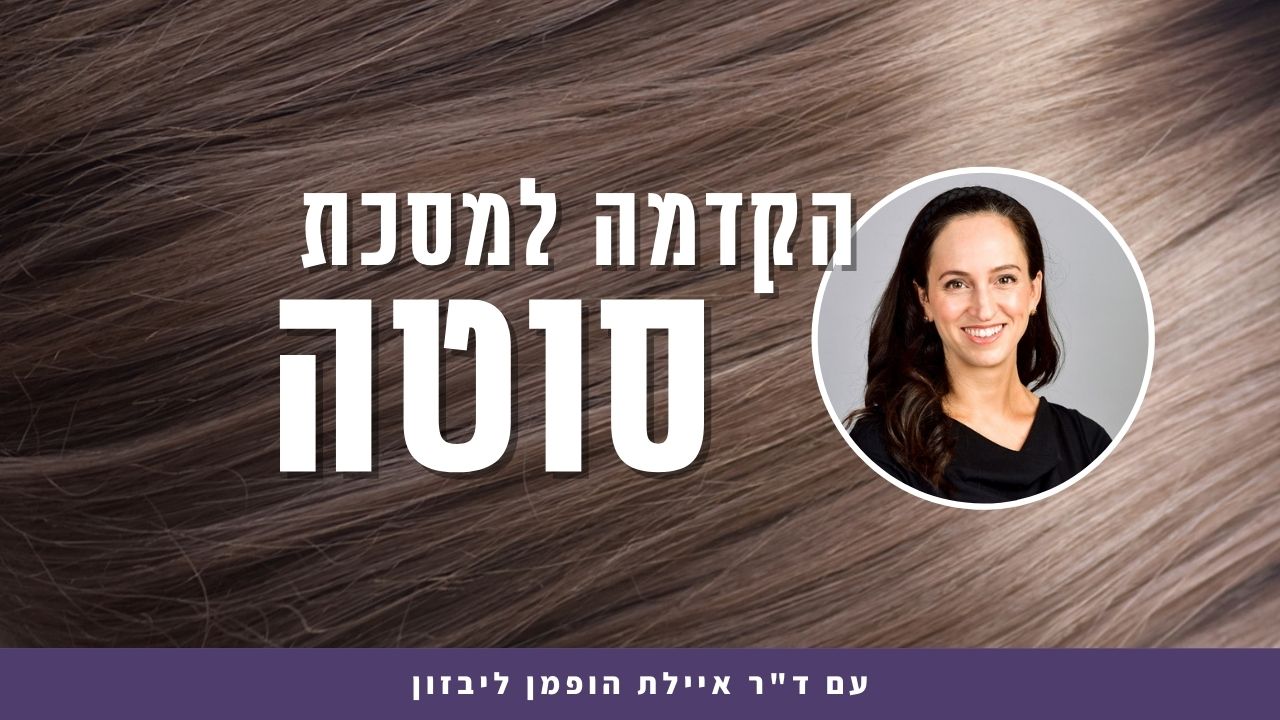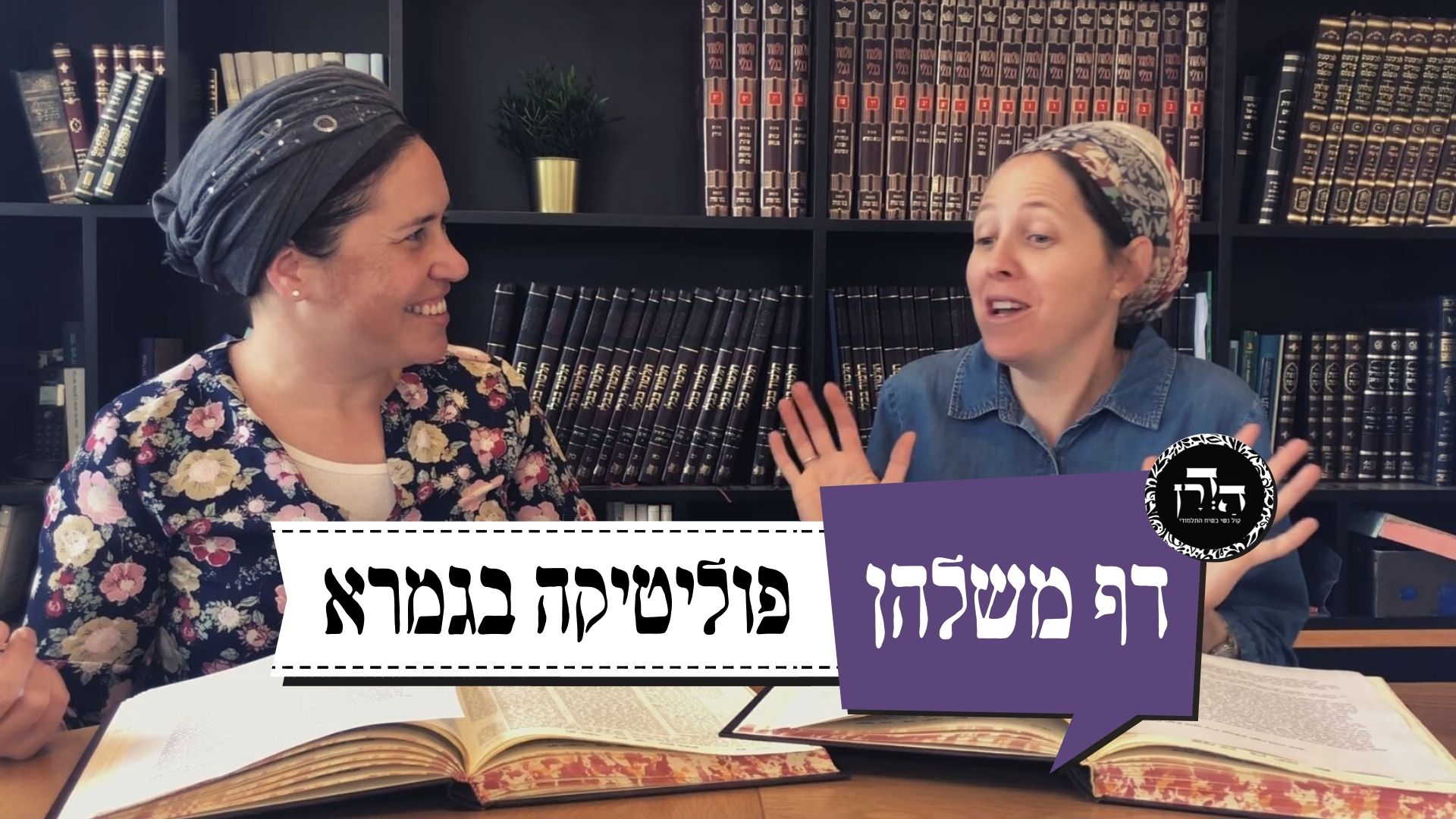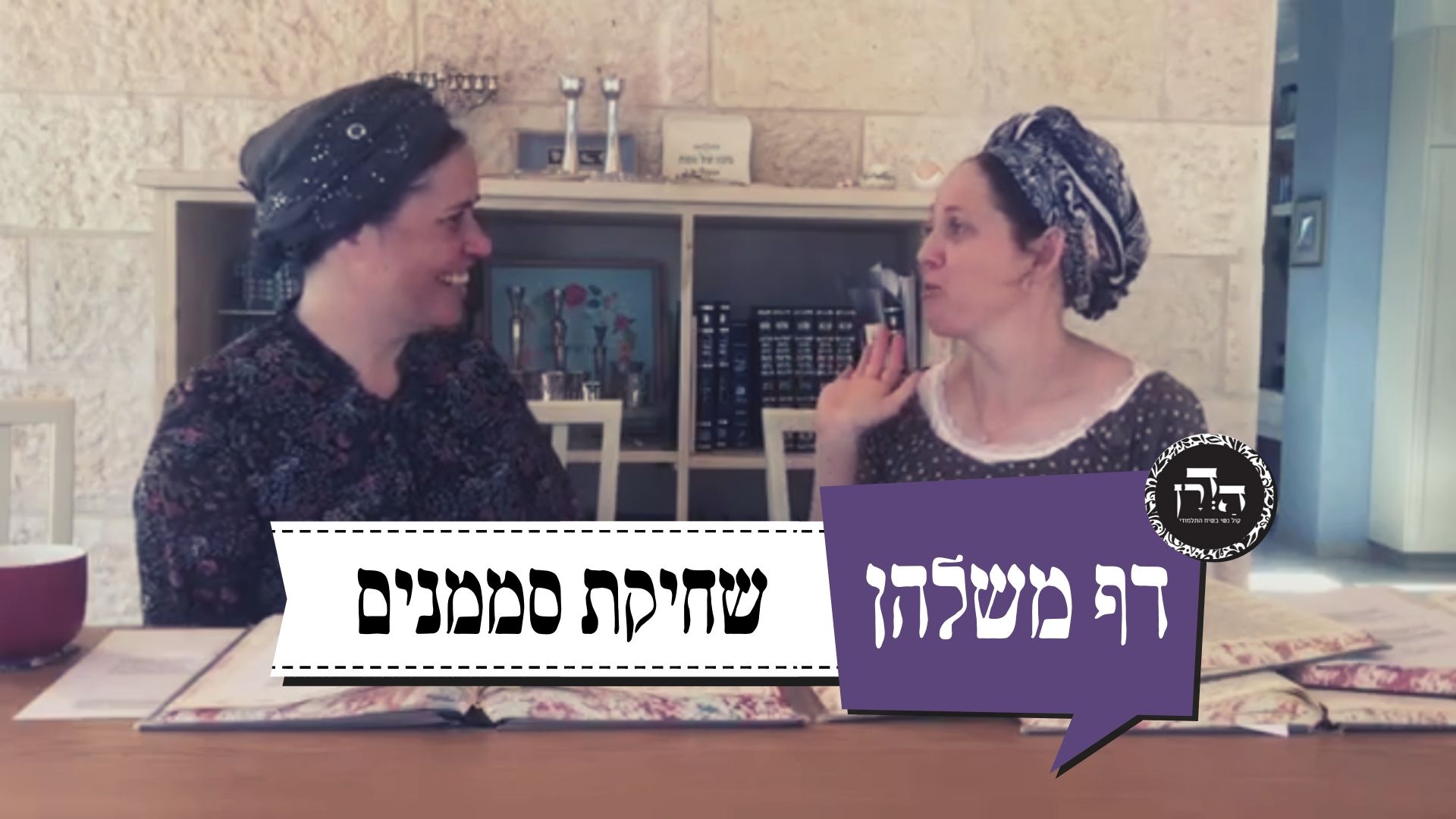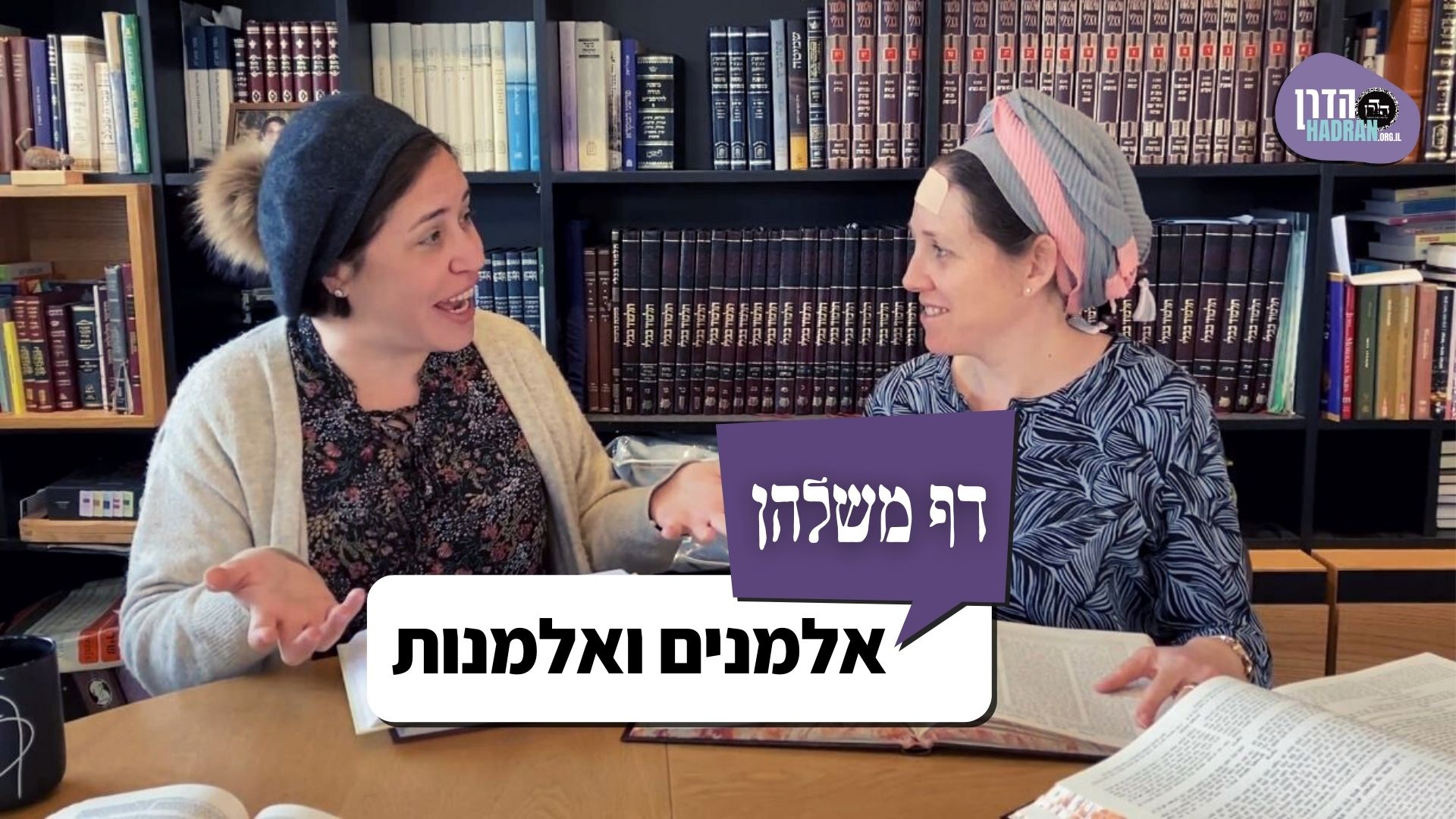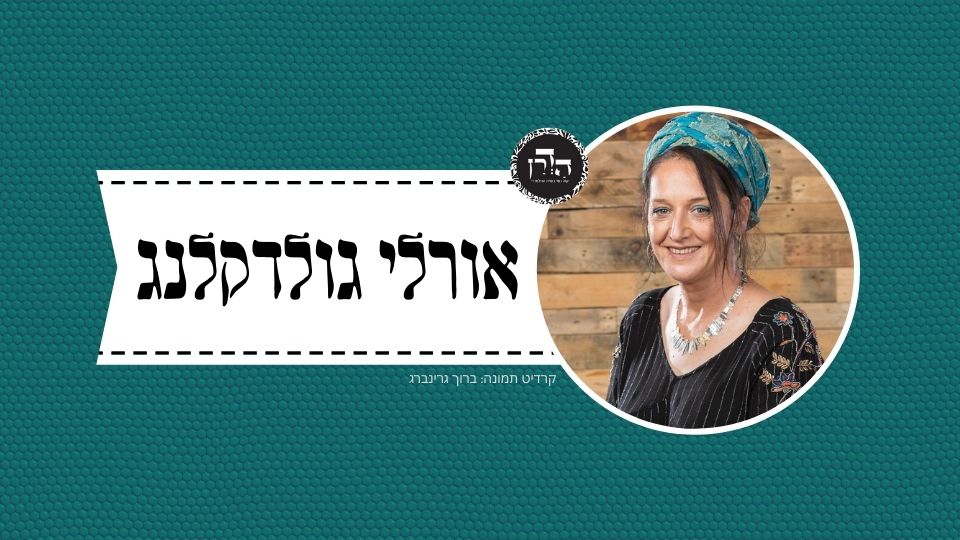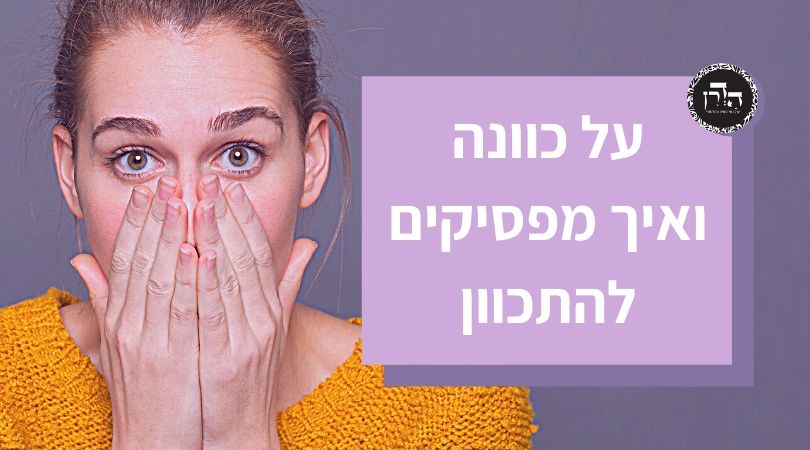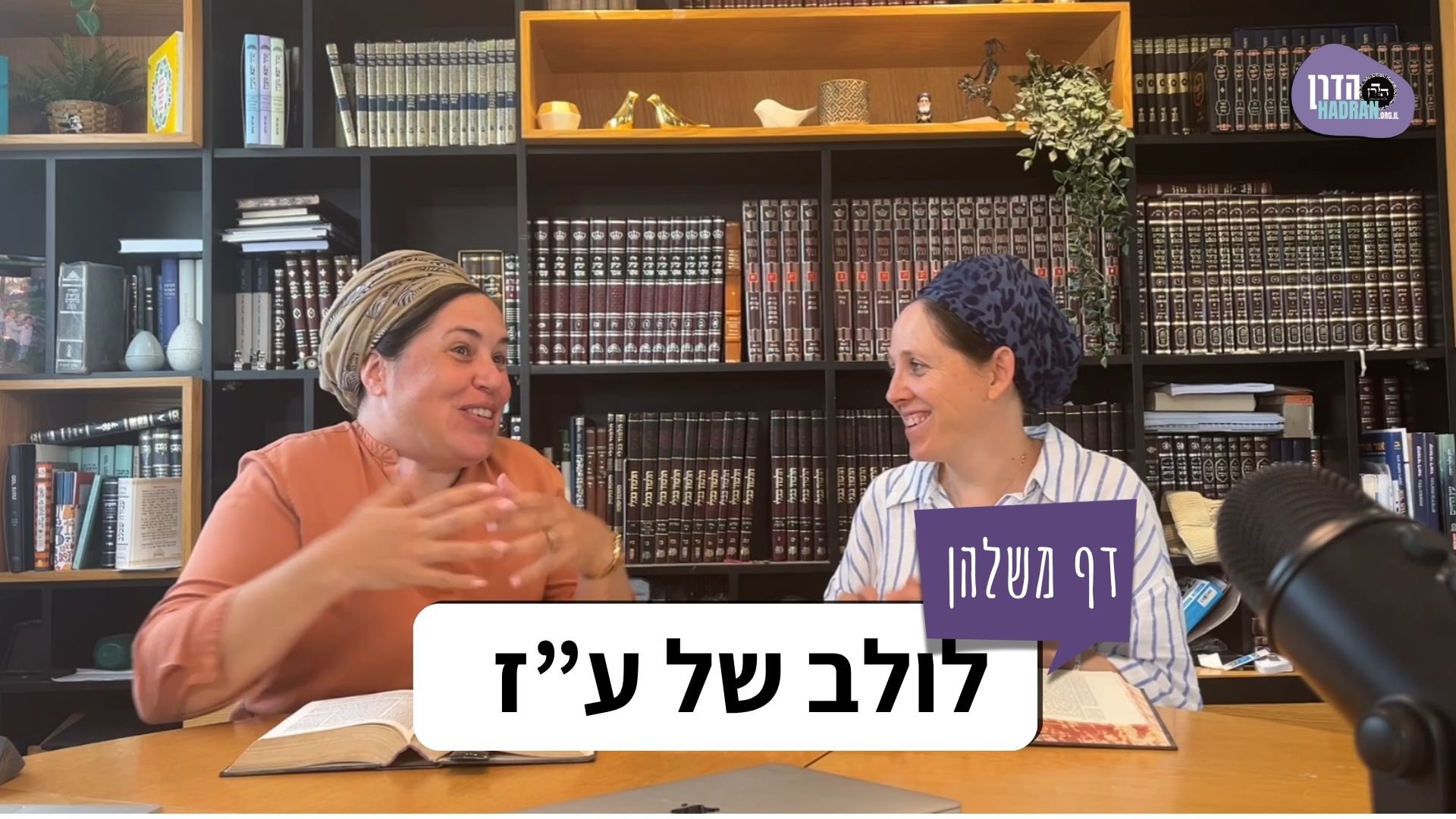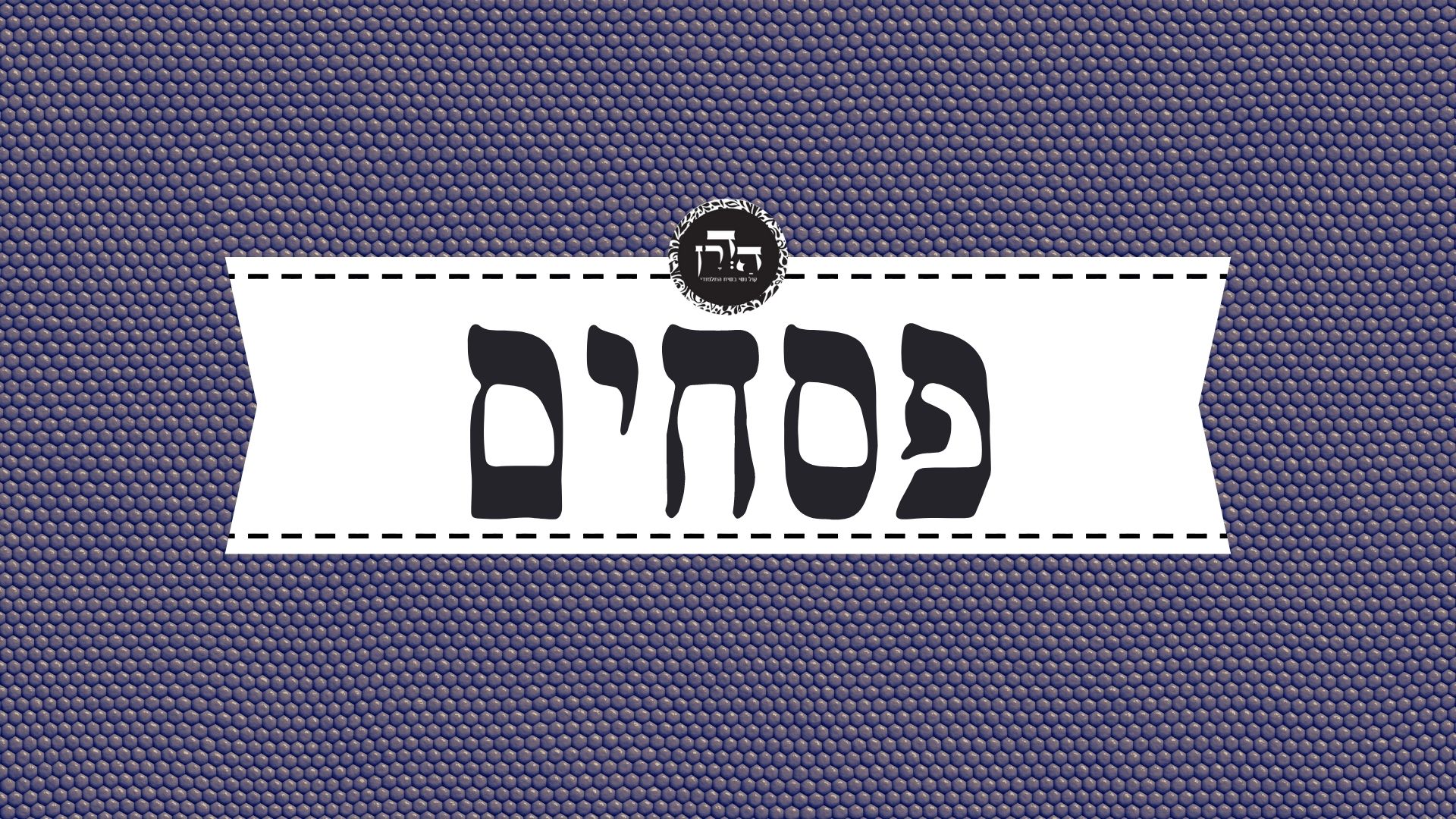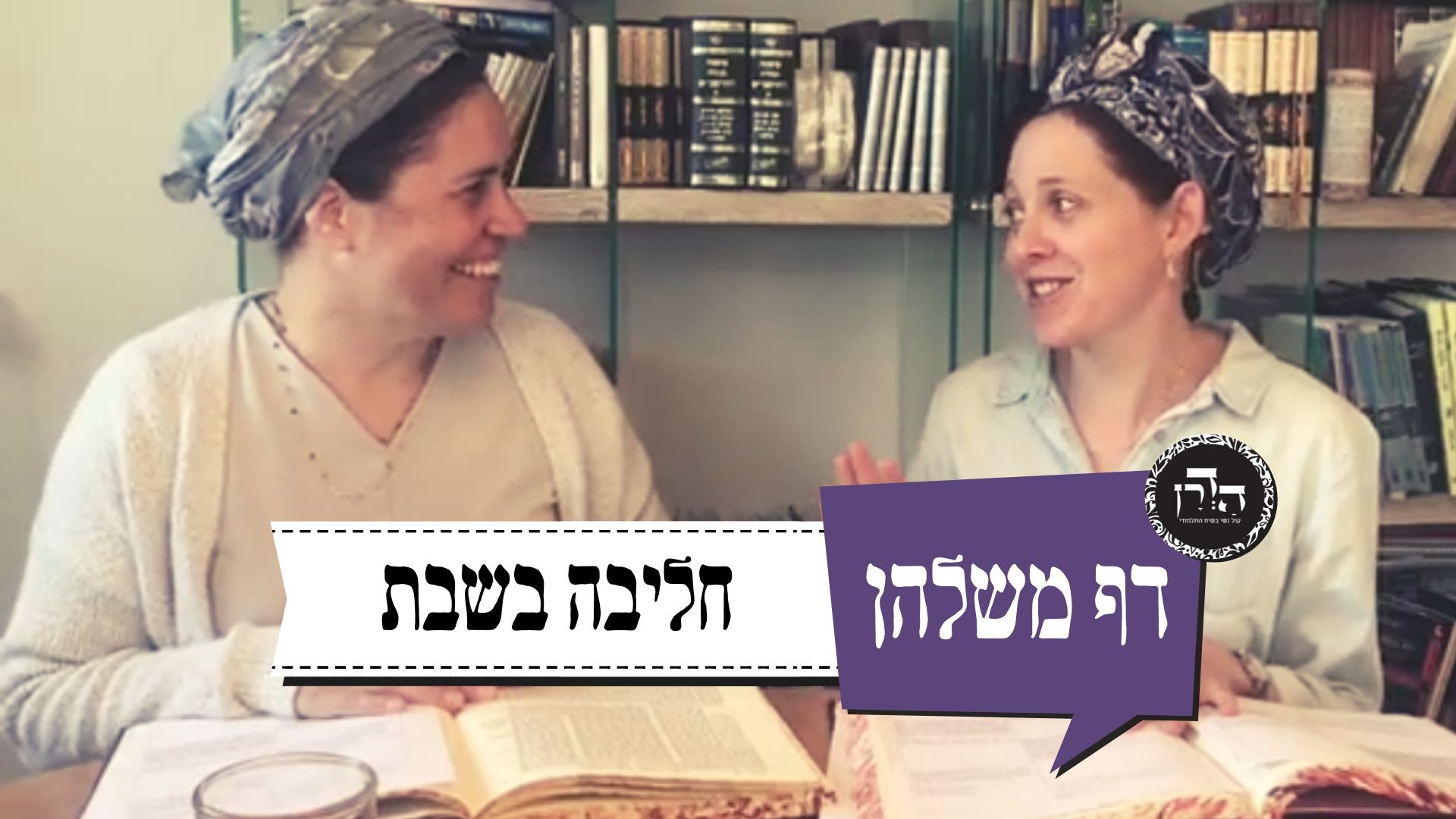השוחט בשבת באיסור – שחיטתו כשרה – מותר לאכול הבשר. אבל רב אומר שאסור לאכלו בשבת (אפילו בלי לבשל). אמרו שרב אמר דבריו לפי שיטת ר’ יהודה. הגמרא מנסה להבין מאיזה שיטה של ר’ יהודה בהלכות שבת.

כלים
הלימוד החודש מוקדש לרפואת פיליס הכט, גיטל פעשא בת מאשה רחל על ידי חברותיה הרבות שאוהבות ומעריכות אותה.
כלים
העמקה
רוצה להבין מה באמת קורה מתחת לפני השטח של הסוגיה?
שיעורים, פודקאסטים והרחבות של מיטב המורות שלנו יפתחו לך עוד זוויות וכיווני חשיבה.
חדשה בלימוד הגמרא?
זה הדף הראשון שלך? איזו התרגשות עצומה! יש לנו בדיוק את התכנים והכלים שיעזרו לך לעשות את הצעדים הראשונים ללמידה בקצב וברמה שלך, כך תוכלי להרגיש בנוח גם בתוך הסוגיות המורכבות ומאתגרות.
פסיפס הלומדות שלנו
גלי את קהילת הלומדות שלנו, מגוון נשים, רקעים וסיפורים. כולן חלק מתנועה ומסע מרגש ועוצמתי.
חולין יד
מתני׳ השוחט בשבת וביום הכיפורים אף על פי שמתחייב בנפשו שחיטתו כשרה:
MISHNA: In the case of one who slaughters an animal on Shabbat or on Yom Kippur, although he is liable to receive the death penalty, his slaughter is valid.
גמ׳ אמר רב הונא דרש חייא בר רב משמיה דרב אסורה באכילה ליומא ונסבין חבריא למימר רבי יהודה היא
GEMARA: Rav Huna says that Ḥiyya bar Rav taught in the name of Rav: If one slaughtered an animal on Shabbat and Yom Kippur, although the slaughter is valid, consumption of the animal is prohibited for that day, and the members of the company of Sages, i.e., those in the academy, tended to say that this halakha is the opinion of Rabbi Yehuda.
הי רבי יהודה א”ר אבא רבי יהודה דהכנה היא דתנן מחתכין את הדילועין לפני הבהמה ואת הנבלה לפני הכלבים רבי יהודה אומר אם לא היתה נבלה מערב שבת אסורה לפי שאינה מן המוכן אלמא כיון דלא איתכן מאתמול אסורה ה”נ כיון דלא איתכן מאתמול אסורה
The Gemara asks: Which opinion of Rabbi Yehuda? Rabbi Abba said: It is the opinion of Rabbi Yehuda with regard to preparation for Shabbat, as we learned in a mishna (Shabbat 156b): One may cut the gourds before an animal on Shabbat, provided that they were picked prior to Shabbat. And likewise, one may cut an animal carcass to place before the dogs on Shabbat. Rabbi Yehuda says: If it was not already a carcass prior to Shabbat, it is prohibited to cut it or even move it on Shabbat because it is not prepared for use on Shabbat. Apparently, since it was not prepared from yesterday, it is prohibited. Here too, in the mishna where an animal was slaughtered on Shabbat or Yom Kippur, since it was not prepared from yesterday, it is prohibited.
א”ל אביי מי דמי התם מעיקרא מוכן לאדם והשתא מוכן לכלבים הכא מעיקרא מוכן לאדם והשתא מוכן לאדם מי סברת בהמה בחייה לאכילה עומדת בהמה בחייה לגדל עומדת
Abaye said to Rabbi Abba: Are the cases comparable? There, in the mishna in tractate Shabbat, initially the animal is prepared for use by a person, as it was prepared for slaughter, and now that it died without slaughter on Shabbat it is prepared for dogs. But in the mishna here, initially the animal is prepared for use by a person and now after it was slaughtered it remains prepared for use by a person. Rabbi Abba rejects that distinction: Do you hold that an animal during its lifetime is designated for consumption and therefore is prepared for use by a person? On the contrary, an animal during its lifetime is designated for breeding.
א”ה בהמה לרבי יהודה בי”ט היכי שחטינן אמר לו עומדת לאכילה ועומדת לגדל נשחטה הובררה דלאכילה עומדת לא נשחטה הובררה דלגדל עומדת
Abaye asked: If that is so that an animal is not designated for consumption, according to Rabbi Yehuda, how do we slaughter an animal on a Festival? Rabbi Abba said to Abaye: During its lifetime, the animal is designated for consumption and designated for breeding. If it was slaughtered, it is retroactively clarified that it was designated for consumption; if it was not slaughtered, it is retroactively clarified that it was designated for breeding.
והא לית ליה לרבי יהודה ברירה מנא לן אי נימא מדתניא
But isn’t it so that Rabbi Yehuda does not accept the principle of retroactive designation? From where do we derive that this is Rabbi Yehuda’s opinion? If we say that we learn it from that which is taught in the following baraita, there is no proof.
הלוקח יין מבין הכותים אומר שני לוגין שאני עתיד להפריש הרי הן תרומה עשרה מעשר ראשון תשעה מעשר שני ומיחל ושותה מיד דברי ר”מ רבי יהודה ורבי יוסי ור”ש אוסרין
It is taught in a baraita (Tosefta, Demai 8:7): In the case of one who purchases wine from among the Samaritans just before Shabbat, and presumably teruma and tithes were not separated, he acts as follows: If there are one hundred log of wine in the barrels, he says: Two log that I will separate in the future are teruma, as the mandated average measure of teruma is one-fiftieth; ten log are first tithe; and a tenth of the remainder, which is nine log, are second tithe. And he deconsecrates the second tithe that he will separate in the future, transferring its sanctity to money, and he may drink the wine immediately, relying on the separation that he will perform later, which will clarify retroactively which log he designated for the tithes and for teruma. This is the statement of Rabbi Meir. Rabbi Yehuda and Rabbi Yosei and Rabbi Shimon prohibit this practice. Apparently, Rabbi Yehuda does not accept the principle of retroactive designation.
התם כדקתני טעמא אמרו לו לרבי מאיר אי אתה מודה שמא יבקע הנוד ונמצא שותה טבלים למפרע אמר להן לכשיבקע
The Gemara comments: That is no proof, as there, the reason for the opinion of Rabbi Yehuda is as is taught in the latter clause of the baraita: The Rabbis said to Rabbi Meir: Don’t you concede that perhaps the wineskin will burst before he manages to separate the teruma, and this person will have been found retroactively to be drinking untithed produce? Rabbi Meir said to the Rabbis: The mere possibility that this may occur is not a concern. When it actually bursts, I will be concerned. Evidently, Rabbi Yehuda’s opinion is not due to his rejection of the principle of retroactive designation, but due to his concern that the wineskin will burst before the tithes are actually separated.
אלא מדתני איו
Rather, the fact that Rabbi Yehuda does not accept the principle of retroactive designation is learned from that which Ayo teaches with regard to the joining of Shabbat boundaries in a case where one knows that two Torah scholars are planning to deliver lectures on Shabbat outside the city limits, one east of the city and one west of the city, and on Shabbat eve one has not yet decided which of the lectures he wishes to attend. In that case, he may place the food for the joining of boundaries on both sides of the city and stipulate that he will be able to go beyond the city limits in whichever direction he chooses.
דתני איו רבי יהודה אומר אין אדם מתנה על שני דברים כאחד אלא אם בא חכם למזרח עירובו למזרח למערב עירובו למערב ואילו לכאן ולכאן לא
As Ayo teaches that Rabbi Yehuda says: A person may not stipulate that his joining of the boundaries will take effect on two matters as one. Rather, he may stipulate that if one Sage comes to the east, his joining of the boundaries takes effect to the east, and if he comes to the west, his joining takes effect to the west, while if he stipulates that it should take effect to here or to there and he will go in whichever direction he chooses, in that case, the joining does not take effect.
והוינן בה מאי שנא לכאן ולכאן דלא דאין ברירה מזרח ומערב נמי אין ברירה
And we discussed this baraita: What is different in a case where one stipulates that it should take effect to here or to there such that the joining does not take effect? It is because there is no retroactive designation. If so, stipulating that the joining will take effect to the east or west, depending upon where the Sage goes, should also not take effect because there is no retroactive designation.
ואמר רבי יוחנן וכבר בא חכם
And Rabbi Yoḥanan said: This is a case where when he makes the stipulation, the Sage has already come to either the east or the west, and the joining takes effect in that direction. He makes a stipulation because he does not know where the Sage came. The joining takes effect without the principle of retroactive designation. Nevertheless, since it is clear from the first case of Ayo that Rabbi Yehuda does not accept the principle of retroactive designation, the question remains: From where is it derived that an animal that is slaughtered on Shabbat or Yom Kippur is forbidden for the day that it was slaughtered?
אלא אמר רב יוסף רבי יהודה דכלים היא דתנן כל הכלים הניטלין בשבת שבריהן ניטלין ובלבד שיהו עושין מעין מלאכה שברי עריבה לכסות בהן פי חבית שברי זכוכית לכסות בהן פי הפך
Rather, Rav Yosef said: When Rav said that the halakha that consumption of the animal is prohibited for that day is the opinion of Rabbi Yehuda, the reference is to the opinion of Rabbi Yehuda with regard to vessels, as we learned in a mishna (Shabbat 124b): With regard to all vessels that may be moved on Shabbat, their shards may be moved as well, provided that they are suited for some type of labor. Shards of a large bowl may be used to cover the mouth of a barrel. Shards of a glass vessel may be used to cover the mouth of a cruse.
רבי יהודה אומר ובלבד שיהו עושין מעין מלאכתן שברי עריבה לצוק לתוכן מקפה שברי זכוכית לצוק לתוכן שמן
Rabbi Yehuda says: And it is permitted to use the shards provided that they are suited for a type of labor similar to their original use. In the case of shards of a large bowl, it must be possible to pour a thick broth into them, and in the case of shards of a glass vessel, it must be possible to pour oil into them.
מעין מלאכתן אין מעין מלאכה אחרת לא אלמא כיון דלא איתכן מאתמול להך מלאכה אסירי הכא נמי כיון דלא איתכן מאתמול אסורה
The Gemara infers: If they are suited for a type of labor similar to their original use, yes, they may be moved; but if they are suitable for another type of labor, they may not be moved. Apparently, since the shard was not prepared from yesterday for this type of labor, it is prohibited to move it. Here too, since the animal that was slaughtered was not prepared from yesterday, it is prohibited to eat it.
אמר ליה אביי מי דמי התם מעיקרא כלי והשתא שבר כלי והוה ליה נולד ואסור הכא מעיקרא אוכלא ולבסוף אוכל אוכלא דאיפרת הוא
Abaye said to Rav Yosef: Are the cases comparable? There, in the mishna with regard to vessels, initially it was a vessel and now it is the shard of a vessel, and it is a case of an item that came into being, and it is therefore prohibited to move it. Here, in the case of an animal slaughtered on Shabbat, initially, during its lifetime, it was designated as food, and ultimately, after slaughter, it is food, so it is merely food that was separated [de’ifrat].
ושמעינן ליה לרבי יהודה דאמר אוכלא דאיפרת שפיר דמי דתנן אין סוחטין את הפירות להוציא מהן משקין ואם יצאו מעצמן אסורין
And we heard that it is Rabbi Yehuda who says: Food that was separated is permitted, as we learned in a mishna (Shabbat 143b): One may not squeeze fruits on Shabbat in order to extract liquids from them. And if liquids seeped out on their own, it is prohibited to use them on Shabbat, lest one come to squeeze fruit on Shabbat.
רבי יהודה אומר אם לאוכלין היוצא מהן מותר ואם למשקין היוצא מהן אסור
Rabbi Yehuda says: If the fruits were designated for eating, the liquid that seeped from them on Shabbat is permitted. And if the fruits were designated for their liquids, the liquids that seeped from them on Shabbat are forbidden, lest he come to squeeze them on Shabbat. With regard to fruits that are designated for consumption, the liquid is considered food that was separated and is permitted. The same halakha applies with regard to an animal slaughtered on Shabbat: Since it was designated for consumption, its meat is food that was separated and should be permitted according to Rabbi Yehuda.
לאו אתמר עלה אמר רב יהודה אמר שמואל מודה היה רבי יהודה לחכמים בסלי זיתים וענבים
The Gemara rejects that interpretation and states that, on the contrary, there is proof that Rabbi Yehuda would prohibit eating an animal that was slaughtered on Shabbat. Wasn’t it stated with regard to that mishna that Rav Yehuda says that Shmuel says: Rabbi Yehuda conceded to the Rabbis in the case of baskets of olives and grapes that are typically designated for their liquids, even though one had planned to eat them, that liquid that seeps from them is forbidden?
אלמא כיון דלסחיטה קיימי יהיב דעתיה הכא נמי כיון דלשחיטה קיימא יהיב דעתיה
Apparently, since olives and grapes are typically designated for squeezing, one sets his mind to use them for their liquids, and were it permitted for him to use their liquids that seep out on Shabbat, the concern is that he will come to squeeze them on Shabbat. Therefore, the Sages decreed that the liquids are forbidden. Here too, since the animal is designated for slaughter, a person sets his mind to eat it. Therefore, were it permitted for him to eat the meat on Shabbat, the concern is that he will come to slaughter it on Shabbat. Consequently, the Sages decreed that the meat is prohibited.
מידי הוא טעמא אלא לרב האמר רב חלוק היה רבי יהודה אפילו בסלי זיתים וענבים
The Gemara justifies Abaye’s interpretation of the mishna: This explanation is valid only according to Rav, who said that the ruling that it is prohibited to eat an animal slaughtered on Shabbat until after Shabbat is according to the opinion of Rabbi Yehuda. Didn’t Rav say: Rabbi Yehuda was in disagreement with the Rabbis even in the case of baskets of olives and grapes? According to Rav himself, just as Rabbi Yehuda deems permitted liquids that seeped from olives and grapes on their own, Rabbi Yehuda should have also deemed an animal that was slaughtered on Shabbat permitted for that day.
אלא אמר רב ששת בריה דרב אידי רבי יהודה דנרות היא דתניא מטלטלין נר חדש אבל לא ישן דברי רבי יהודה
Rather, Rav Sheshet, son of Rav Idi, said: When Rav said that the halakha that it is prohibited to consume the animal that day is the opinion of Rabbi Yehuda, the reference is to the opinion of Rabbi Yehuda with regard to lamps, as it is taught in a baraita: One may move, for purposes other than lighting it, a new earthenware lamp that was never used. But one may not move an old lamp covered with residue of oil and soot, because a person sets it aside from use due to repugnance. Since it was set aside at the beginning of Shabbat, it is set aside for the entire Shabbat and it may not be moved even if a need to move it arises; this is the statement of Rabbi Yehuda. The same halakha applies with regard to an animal slaughtered on Shabbat: Since it was prohibited when Shabbat began as the limb of a living being, it remains prohibited for the entire Shabbat.
אימר דשמעת ליה לרבי יהודה במוקצה מחמת מיאוס מוקצה מחמת איסור מי שמעת ליה אין דתנן רבי יהודה אומר
The Gemara rejects that analogy. Say that you heard Rabbi Yehuda rule that it is prohibited for the entire Shabbat in a case where it is set aside due to repugnance, like the old lamp. Did you hear that he said that it is prohibited for the entire Shabbat in a case where it is set aside due to a prohibition, like the animal? The Gemara answers: Yes, as we learned in a baraita that Rabbi Yehuda says:
